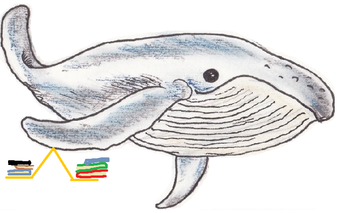
We have come up with some helpful suggestions for the exam boards to take into account when balancing up the books...
2. I can't decide whether it's more surprising that two thirds of GCSE set texts are by men, or that, upon reflection, I can't remember reading any books by women for my GCSE (although this was far longer ago now than I'd like to admit so it's not exactly a yardstick by which to measure the current syllabus). Poetry, yes - ok Carol Ann Duffy, The Onion is symbolic, we get it. But no books. The year above or below me studied A Handmaid's Tale and I 'borrowed' a copy from the classroom to devour. Margaret Atwood is certainly a good name to add to the list. But what about the classics - we didn't read any Austen or George Eliot. I'm not great at judging what is age-appropriate for teenagers, but I'm a huge fan of Zadie Smith and think her work would be a great addition to any course. I read The Bell Jar at that age and fell in love with it - I would certainly rather have had that count towards my exams than the Ted Hughes poems we were learning. Yup, the more I think about it, the more astonished I am the divide is so large. Squeamish Louise
3. I've never seen the point in shoe-horning women into lists of authors when it doesn't make sense. Sure, the fact that Elizabethan women weren't as represented on the page as their male cohorts is shitty, but that's how it was. If you want to put more women on reading lists for quality purposes, plumb the archives of Dorothy Parker, Rumer Godden, Margaret Atwood, Daphne du Maurier, any of the Bloomsbury Group... The early to mid 20th century gave us a wealth of quality output from talented (and admittedly largely white and privileged) women. Leaving the English language gives us Isabelle Allende, Simone de Beauvoir, and Wei Hui, all of whom have strong voices and tell good stories.F1Kate
4. Mary Shelley's Frankenstein (particularly the original 1818 version rather than the more commonly published tamer 1831 re-write) is a masterpiece. As the first Science Fiction novel it inspired an entire genre and deserves to be studied - if only to teach people that Frankenstein is not the name of the creature and he certainly doesn't have green skin and bolts in his neck! Gareth
5. I can't remember the books I had to read for GCSE. I know there was some Shakespeare in their somewhere but apart from that it's a blank. Then I had another think and realised I can't even profess to read many female writers. I blame the system. My favourite author is Jean Rhys but she's a bit Pernod heavy for the teens I think. Squeamish Nicola


 RSS Feed
RSS Feed
